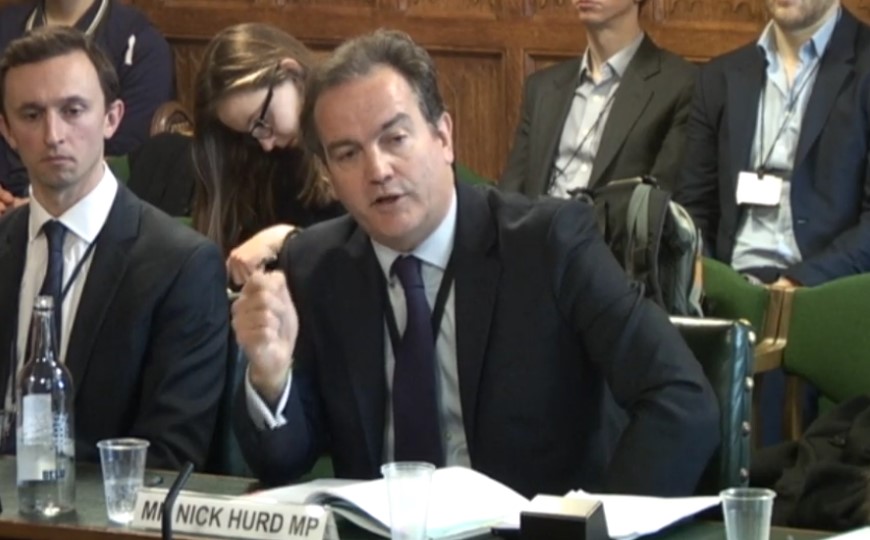The UK’s decision to leave the EU and the spectre of Donald Trump’s presidency will not stop the government delivering its emissions reduction plans, climate minister Nick Hurd today told MPs.
Speaking to the House of Commons Business, Energy and Industrial Strategy select committee, he said the current political climate meant ministers would have to make many difficult policy decisions. But he maintained that the UK’s climate goals, entrenched in the Climate Change Act, remained unchanged.
“Brexit is a complication in the sense that we’ve got issues to think through”, he said. These include whether the UK continues to negotiate as part of a European bloc in future negotiations, whether it continues with the EU’s struggling emissions trading scheme, and how the UK participates in a unified European energy market.
These are “complex issues”, Hurd admitted. But the government is “ultimately accountable to our carbon budget” rather than international, potentially changeable, targets, he said.
Further details of how the UK plans to deliver these plans will be published by the end of March, Hurd promised. Ministers had previously promised to deliver such a report by the end of 2016.
The minister acknowledged that many decisions remained outstanding about how to retract EU regulations from UK law while retaining environmental protections.
“In the context of Brexit we’ve got an opportunity to take stock again and look afresh at what we want to do through both the prism of national interest and in the context of the need to continue to influence the decisions that other people take”, he said.
But these are “big, complex, interrelated issues” that his department will need to address with the help of other ministers over the coming months.
Trump Challenge
Brexit isn’t the only challenge for the UK’s climate policy. Donald Trump becomes US president on January 20th, and poses a “very big challenge” to international climate plans, Hurd said.
Nonetheless, Hurd said the international community had rallied to submit a “statement of solidarity” at the latest talks in Marrakech, during which Trump won the US presidential election.
So it was too early to talk of “contingency plans” to combat any US intransigence, the minister claimed, saying there was currently too much uncertainty around what Trump actually plans to do.
“When we see the reality of the plans of the Trump administration, which we don’t know, no one knows, the international community has to respond. And we will be part of that response.
“But I don’t think it’s appropriate for us to talk about contingency plans in that context. It’s for us to fulfil our commitments to the British public in terms of making sure we’re on track to meet our commitments at the lowest possible cost”, he said.
Speaking at the same committee hearing, Archie Young, the head of the UK’s delegation to the UN climate talks, said the UK would have a significant role in trying to ensure the US continued to engage on the issue in some way.
“We have a long history of working with the US on energy issues, on climate change issues, of administrations of various different colours where we’ve agreed and disagreed more or less over the years.
“And I think as the Foreign Secretary has said to the house, we will obviously be hoping to continue to cooperate and making sure that we speak truth and that we explain our point of view, and that we work with the various parts of the US system so we can continue this movement as quickly and with as much robustness and rigour as possible.”
Hurd also pointed to China’s apparent willingness to lead on the international stage in the absence of the US as a reason for encouragement.
In the wake of Trump’s election victory during the Marrakech talks, “what was very striking was that China came out of the traps very very quickly to send a signal of reassurance to the conference and to the world that they’re in”, he said.
“They’re in for very pragmatic reasons because they’ve got serious issues at home in relation to air pollution, they’ve got very serious issues in relation to risk around food security and water security, so they are clearly in.”
So while Brexit and President Trump represent challenges to the UK’s climate policy, Hurd remains confident the UK, with the support of a large coalition of other leading economies, will deliver on its own ambitious emissions reduction plans.
Subscribe to our newsletter
Stay up to date with DeSmog news and alerts







